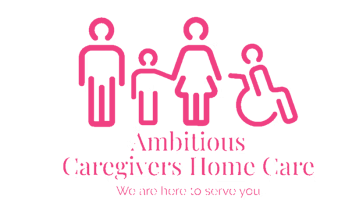Introduction
When it comes to healthcare at home, people often confuse skilled nursing care with home health care. But honestly, there’s a pretty big difference between the two. Both are essential for maintaining a person’s health and comfort, especially for seniors or those recovering from surgery or managing chronic conditions. Yet, the type of services, the qualifications of caregivers, and even how care is delivered vary a lot.
Let’s break it down so it’s easy to understand and help you figure out which one may be right for your loved ones or even for yourself someday.
Understanding Skilled Nursing Care
What Is Skilled Nursing Care?
Skilled nursing care refers to a high level of medical care provided by trained registered nurses (RNs) or licensed practical nurses (LPNs). This kind of care is usually prescribed by a doctor and is meant for people who require medical attention that cannot be provided by family or general caregivers.
This type of care often includes:
- Administering IV medications or injections
- Monitoring vitals and medical equipment
- Wound care
- Post-surgical rehabilitation
- Complex medical assessments
Platinum Home Health Care is often provided in nursing homes, rehab centers, or right in a patient’s own home through specialized agencies.
Who Needs Skilled Nursing Care?
Not everyone needs this level of attention, but if someone is recovering from major surgery, dealing with a serious illness, or living with conditions like stroke, cancer, or heart failure, they might.
Some of the most common patients include:
- Seniors with chronic illness
- Individuals recovering from accidents or surgeries
- Pediatric patients needing specialized care (more on this later)
What Is Home Health Care?
A Broader Category of At-Home Support
Home health care is a much broader term. It covers medical and non-medical services provided at home to help someone recover or maintain their health. Services include physical therapy, occupational therapy, speech therapy, and even assistance with daily activities.
Unlike skilled nursing care, home health care might also include support from certified nursing assistants (CNAs), therapists, or even social workers.
Services Typically Include:
- Physical therapy
- Medication management
- Assistance with bathing, grooming, and mobility
- Regular health monitoring
Key Differences Between Skilled Nursing Care and Home Health Care
Level of Medical Attention
It is intensive and requires registered medical professionals. Home health care may include medical and non-medical assistance, and it’s not always supervised by a doctor.
Duration and Frequency
Skilled nursing care may be required daily or around the clock, especially after hospitalization. Home health care, on the other hand, can be more flexible and scheduled based on the client’s routine and needs.
Cost and Insurance Coverage
Most insurance plans, including Medicare, cover both to some extent, but They usually comes with more stringent medical requirements. It may be more expensive due to the clinical nature of the services.
Environment of Care
While both can happen at home, skilled nursing is also commonly provided in specialized facilities. Home health care typically happens in the comfort of the person’s residence and focuses more on quality of life.
The Role of Private Duty Nursing Services in Pediatric Services
A special area where Private Duty Nursing Services really stands out is in pediatric nursing services. Children with serious conditions like neurological disorders or genetic illnesses may require constant medical monitoring that only skilled nurses can provide.
In such cases, care often involves:
- Managing feeding tubes
- Administering complex medications
- Monitoring oxygen levels and respiratory health
This is not something just anyone can do. It requires specialized training and compassion.
How Private Caregivers Fit Into the Picture
While private caregivers play a crucial role in personal care, they usually aren’t equipped to handle medical tasks like wound care or administering IVs. They are great for companionship, help with hygiene, meal prep, light housekeeping, and medication reminders.
That said, many families combine Platinum Home Health Care with services from private caregivers to ensure comprehensive care for their loved ones.
When Should You Choose Skilled Nursing Care?
Here are a few scenarios where skilled nursing care is the best choice:
- When post-surgical care is required
- After a serious illness like a stroke or heart attack
- For managing chronic conditions like diabetes with complications
- For elderly patients who have wounds or require IV therapy
Conclusion
Choosing between nursing care and home health care can be confusing, but understanding the differences makes it easier to decide what’s best for your situation. If your loved one needs medical support at a professional level especially involving medication, wound care, or recovery from surgery Platinum Home Health Care is likely the better option.
In contrast, when someone simply needs help staying safe and comfortable at home, then home health services or assistance from private caregivers may be enough.
In the last 300 words of this blog, we also want to point out that blending services is often the most effective solution. For example, families dealing with both complex medical issues and daily living needs often combine skilled nursing care with private caregivers and even support from specialized pediatric nursing services to cover all the bases.
At the end of the day, every family’s situation is different. Make sure you consult with healthcare providers or licensed care agencies to get the best combination for your loved ones.
FAQs About Skilled Nursing Care
1. What qualifications do skilled nursing care providers have?
Skilled nurses are RNs or LPNs with state certification and clinical experience. Many also have additional training in areas like wound care or post-operative recovery.
2. Can skilled nursing care be provided at home?
Yes, many agencies offer nursing care at home, especially for patients who are recovering from hospital stays but don’t need to be readmitted.
3. What’s the difference between skilled nursing care and private caregiving?
Private caregivers help with daily living tasks and companionship. nursing care is clinical and involves tasks like medication administration, wound care, and more complex medical needs.
4. Are skilled nursing services available for children?
Yes. Many agencies offer specialized pediatric nursing services that fall under skilled care, tailored for children with chronic or complex health needs.








